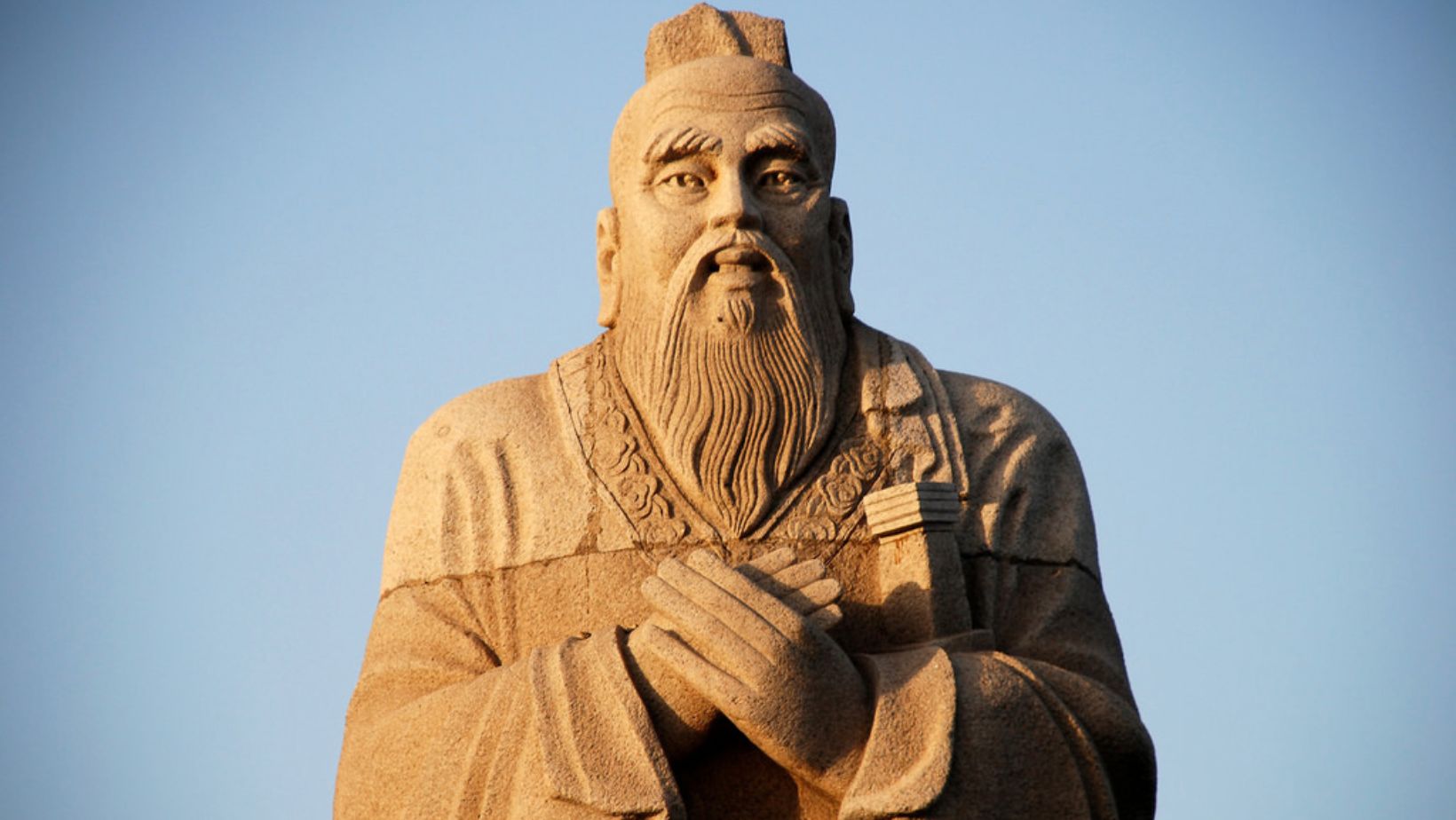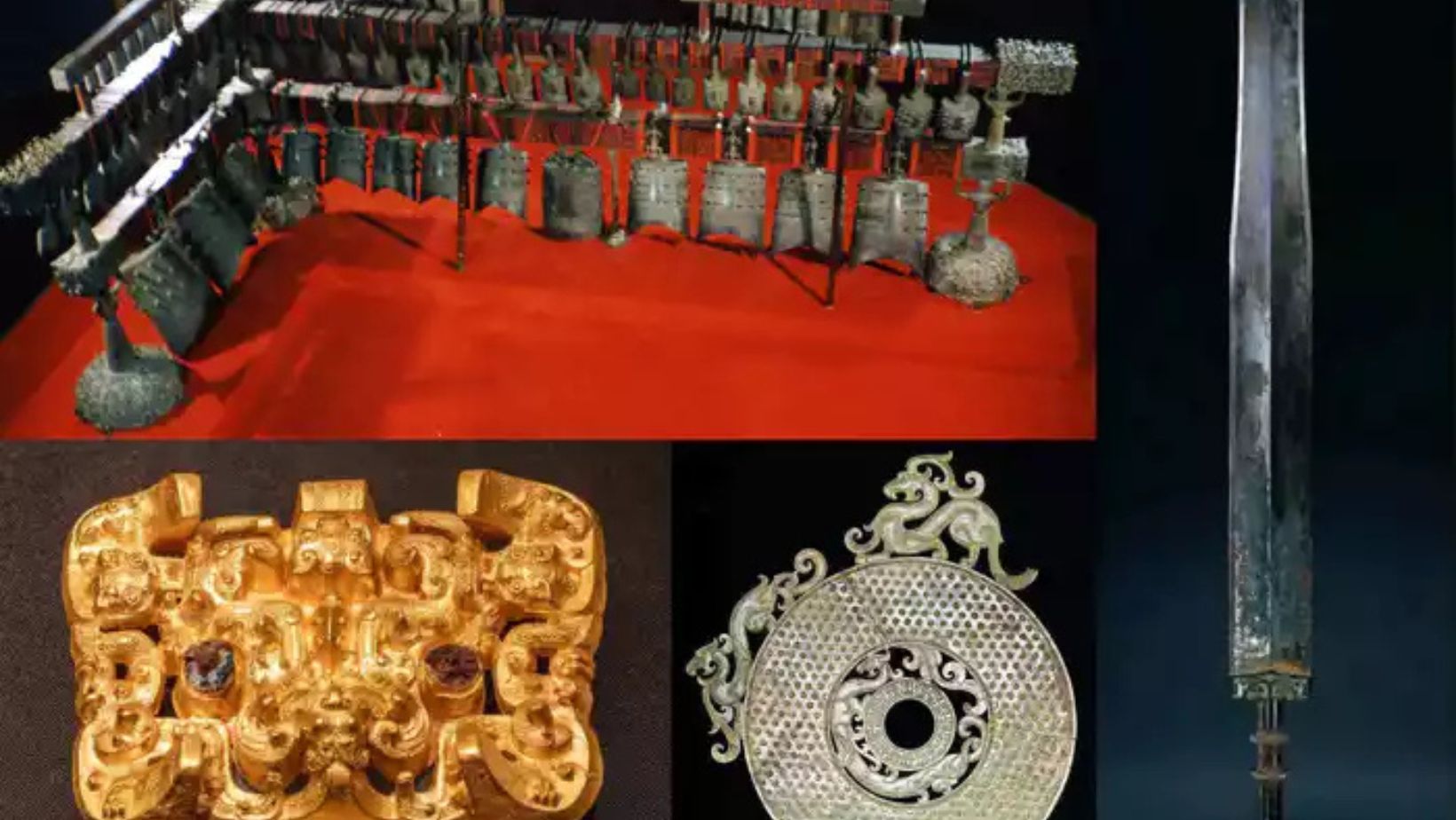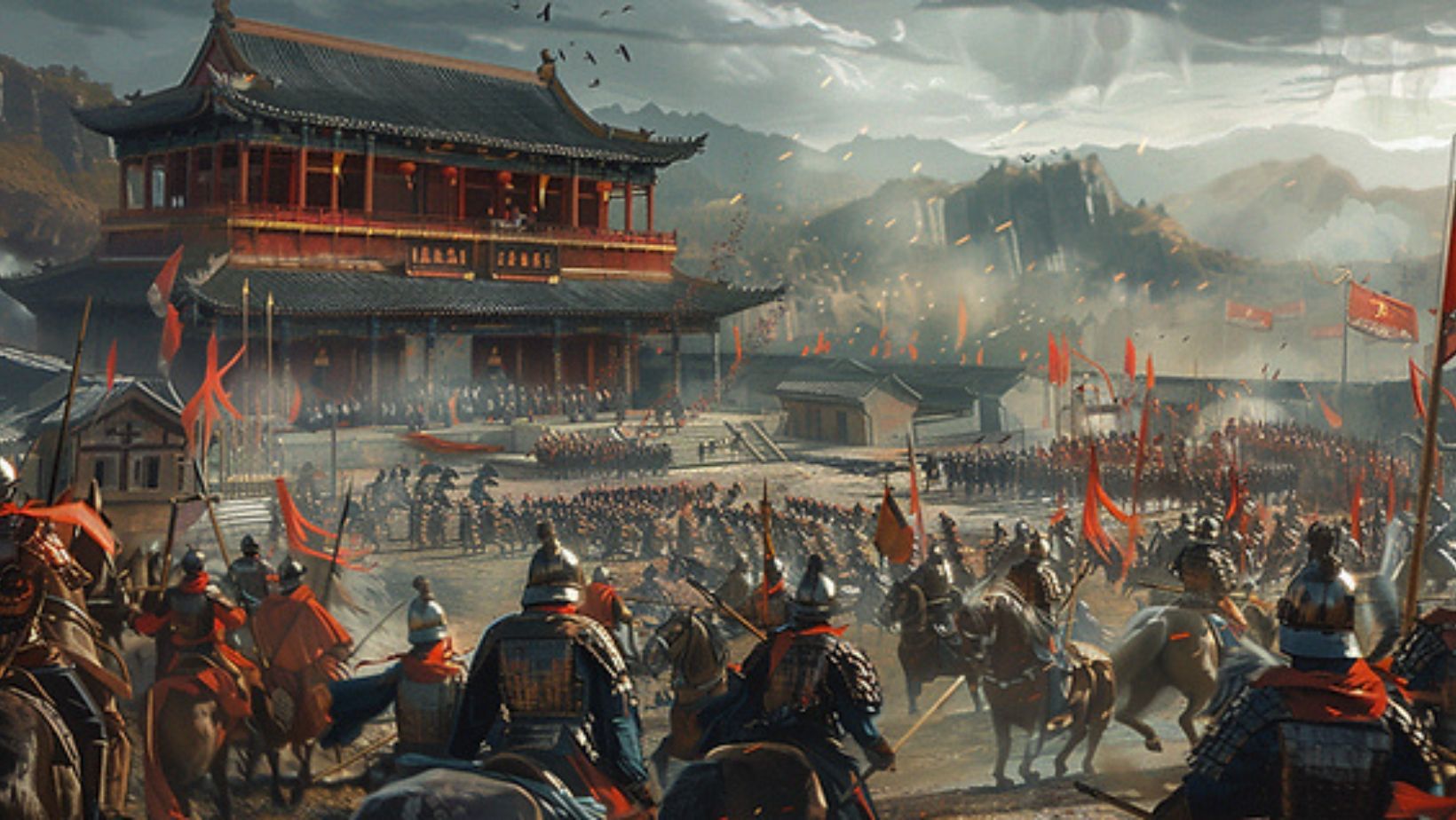The Zhou Dynasty, lasting from 1046 to 256 BCE, is a pivotal chapter in Chinese history. It marked a time of remarkable innovation and profound change. This era saw the birth of influential philosophies like Confucianism and Daoism, which continue to shape Chinese culture today. Technological advancements in agriculture and warfare transformed daily life and governance. As we explore the Zhou Dynasty, we’ll uncover how its innovations laid the groundwork for future dynasties and influenced modern China. Join us on this journey through an age of creativity, conflict, and cultural evolution.
Historical Context: Zhou Dynasty

The Zhou Dynasty, which lasted from 1046 to 256 BCE, marked a significant shift in Chinese history. It followed the Shang Dynasty, known for its advances in bronze casting and writing. The Zhou came to power after a successful rebellion against the Shang, claiming the Mandate of Heaven. This concept justified their rule, suggesting that heaven bestowed power based on the virtue of the ruler.
The Zhou Dynasty is divided into two periods: the Western Zhou and the Eastern Zhou. The Western Zhou (1046–771 BCE) was characterized by strong central authority and territorial expansion. However, the dynasty weakened in the Eastern Zhou period (770–256 BCE), leading to feudal fragmentation and the rise of powerful regional states.
Despite this decline, the Eastern Zhou witnessed significant cultural and philosophical developments. Confucianism and Daoism emerged during this time, influencing Chinese thought for centuries. The Zhou Dynasty set the stage for subsequent dynasties, emphasizing the importance of moral governance and the relationship between rulers and their subjects.
Political Structure of the Zhou Dynasty
The political structure of the Zhou Dynasty was largely based on a feudal system. This system decentralized power, allowing local lords to govern their own territories while pledging loyalty to the Zhou king. In this arrangement, the king granted land to nobles in exchange for military support and taxes. This setup helped manage vast territories but also led to local powers becoming increasingly independent.
Key figures in this political landscape included the king, who was seen as the supreme ruler, and the various feudal lords who held land. The king’s authority was considered divinely sanctioned, thanks to the Mandate of Heaven. However, as the dynasty progressed, some lords grew powerful enough to challenge the king’s authority.
The feudal system facilitated the emergence of a complex hierarchy, with local officials managing smaller regions. This decentralized structure contributed to the political fragmentation seen in the Eastern Zhou period. While it allowed for localized governance, it also created rivalries and conflicts among the various states, setting the stage for future power struggles in ancient China.
Cultural Developments and Philosophy
The Zhou Dynasty was a fertile ground for cultural and philosophical developments. During this period, two major philosophies emerged: Confucianism and Daoism. Confucianism, founded by Confucius, emphasized morality, social relationships, and the importance of education. It sought to create a harmonious society through ethical governance and respect for tradition.
Daoism, attributed to Laozi, focused on living in harmony with the Dao, or the natural way of the universe. This philosophy encouraged individuals to embrace simplicity, spontaneity, and a deep connection with nature. Both schools of thought significantly influenced Chinese culture, shaping values and social norms.
The impact of these philosophies extended to governance as well. Confucian ideals encouraged rulers to be virtuous and benevolent, promoting a government based on moral principles. In contrast, Daoism offered a more flexible approach to governance, advocating for minimal intervention and allowing the natural order to prevail.
Together, these philosophies laid the groundwork for future Chinese thought and culture. They provided a framework for ethical behavior and social harmony, influencing generations of leaders and thinkers throughout Chinese history.
Technological Innovations

The Zhou Dynasty is known for its significant technological innovations that transformed agriculture and warfare. Advancements in farming techniques greatly enhanced productivity. The introduction of iron tools, such as plows and sickles, allowed farmers to cultivate land more efficiently. Crop rotation and fertilization practices also improved yields, supporting population growth.
Metallurgy experienced remarkable progress during this period. The Zhou people mastered iron smelting, leading to stronger and more durable weapons and tools. Iron swords and spears replaced bronze ones, giving armies a significant advantage in battle. This innovation not only impacted military strategy but also facilitated the development of agriculture.
Additionally, the production of bronze vessels continued, showcasing artistry and craftsmanship. These vessels were used in rituals, reflecting the culture’s values and beliefs. Innovations in technology laid the foundation for economic stability and growth.
Overall, the technological advancements of the Zhou Dynasty played a crucial role in shaping Chinese society. They enhanced agricultural efficiency and improved military capabilities, allowing the Zhou to maintain power and influence in ancient China.
Art and Literature in the Zhou Dynasty
The Zhou Dynasty saw significant development in poetry and literature, shaping Chinese cultural identity. This period produced some of the earliest forms of Chinese poetry, particularly in the Book of Songs (Shijing), which is a collection of folk songs and hymns. These poems reflect the daily lives, emotions, and values of the people, showcasing a deep connection to nature and societal norms.
Literature during the Zhou also included philosophical texts that laid the groundwork for later schools of thought. Confucian and Daoist writings emerged, emphasizing moral values, harmony, and the relationship between humanity and nature. These philosophical ideas influenced both literature and artistic expressions, promoting themes of balance and virtue.
Art flourished through bronze casting and pottery, with exquisite designs that often depicted animals and mythical creatures. Artisans crafted ceremonial vessels, which held significant ritualistic value. These artistic works served as symbols of power and cultural identity, connecting the people to their ancestral traditions.
In summary, the art and literature of the Zhou Dynasty enriched Chinese culture. They not only reflected the era’s values and beliefs but also influenced future generations, leaving a lasting legacy in Chinese history.
The Role of Trade and Economy
The Zhou Dynasty marked a significant expansion of trade routes and commerce in ancient China. As the dynasty established stability, merchants began to flourish. Trade networks connected various regions, facilitating the exchange of goods such as silk, pottery, and agricultural products. This expansion helped integrate diverse cultures and economies, fostering interregional interactions.
Economic changes during this period also had a profound impact on society. The development of agriculture led to surplus production, enabling population growth. More people meant greater demand for goods and services, which further stimulated trade. Additionally, the introduction of currency improved transactions, making trade more efficient.
As commerce expanded, social classes began to shift. Wealth from trade allowed merchants to gain status, challenging the traditional power held by the aristocracy. This evolving economic landscape fostered a more dynamic society, with new opportunities for upward mobility.
In summary, the role of trade and economy during the Zhou Dynasty was crucial. It not only expanded commerce and trade routes but also transformed social structures and influenced everyday life for many people.
Religion and Spiritual Practices
Religion played a vital role in the Zhou Dynasty, particularly through ancestral worship. The Zhou people believed that honoring their ancestors ensured their favor and protection. Families held regular ceremonies to pay respect, often involving offerings of food and incense. These rituals strengthened family ties and emphasized the importance of lineage.
Spiritual practices also influenced daily life significantly. The beliefs surrounding the afterlife encouraged moral behavior, as individuals sought to uphold their family’s honor. Furthermore, religious festivals provided opportunities for communal gatherings, reinforcing social cohesion. Such practices were essential in promoting unity within communities.
Religion also had a considerable impact on governance during the Zhou Dynasty. Rulers often claimed divine approval for their reign, legitimizing their authority. They performed rituals to seek blessings from the heavens, which strengthened their position and maintained order. Additionally, Confucianism emerged during this time, emphasizing ethical governance and respect for authority.
In summary, religion and spiritual practices were integral to the Zhou Dynasty. Ancestral worship fostered familial bonds and influenced daily life, while religious beliefs shaped governance and societal norms.
Military Strategies and Warfare
Military strategies played a crucial role in the Zhou Dynasty’s expansion and stability. The Zhou employed a feudal system, where local lords commanded troops in exchange for loyalty to the king. This decentralized approach allowed for quick mobilization of forces but also led to challenges in maintaining control over distant regions. Key military conflicts, such as battles against the Shang Dynasty and later against rival states during the Warring States period, tested these strategies.
Warfare was essential in establishing and preserving Zhou power. The use of chariots, along with advancements in weaponry, enhanced their military effectiveness. They adapted tactics based on terrain and enemy strengths, showcasing flexibility in their approach. For instance, the Battle of Muye demonstrated the effectiveness of coordinated attacks and superior weaponry against the Shang forces.
Additionally, military success directly influenced the Zhou Dynasty’s legitimacy. Victories reinforced the king’s authority and justified their rule over the feudal lords. Conversely, defeats could undermine the ruler’s power, leading to rebellion and instability. Overall, military strategies and warfare were fundamental in shaping the Zhou Dynasty’s political landscape and ensuring its longevity.
Decline of the Zhou Dynasty
The decline of the Zhou Dynasty was marked by several key factors that weakened its power. One major issue was the fragmentation of authority among feudal lords. As these local rulers gained more power, they often acted independently, challenging the king’s authority. This decentralization led to a lack of unity and cooperation among the states.
Another contributing factor was the rise of rival states. The feudal lords, seeking greater control and wealth, often engaged in warfare against each other. This constant conflict drained resources and distracted from central governance. Additionally, internal strife weakened the Zhou’s military capabilities, making it difficult to respond to external threats.
The decline of the Zhou ultimately transitioned into the Warring States period (475–221 BCE). During this time, numerous states vied for dominance, resulting in intense competition and warfare. The philosophical and political ideas that emerged during this era were shaped by the chaos and instability of the time. Ultimately, the fragmentation and conflict paved the way for the rise of the Qin Dynasty, which unified China in 221 BCE.
Legacy of the Zhou Dynasty

The Zhou Dynasty has left a profound legacy that continues to influence Chinese culture today. Its political structure, particularly the feudal system, laid the groundwork for governance in subsequent dynasties. This system helped shape the relationships between rulers and subjects, emphasizing loyalty and hierarchy.
Philosophically, the Zhou era gave rise to major schools of thought, including Confucianism and Daoism. These philosophies provided frameworks for ethics, governance, and social harmony that resonated throughout Chinese history. Confucian ideals, in particular, became central to Chinese education and civil service.
Culturally, the Zhou Dynasty fostered advancements in literature, art, and technology that were crucial to the development of Chinese civilization. The promotion of poetry and the arts during this time enriched Chinese cultural identity.
Overall, the Zhou period established essential principles that shaped later dynasties, such as the Qin and Han. Its emphasis on moral governance, cultural development, and social structure influenced Chinese society for centuries, solidifying the Zhou Dynasty’s role as a cornerstone in Chinese history.
Conclusion: Zhou Dynasty
The Zhou Dynasty was a period marked by significant innovations and changes that shaped the course of Chinese history. Key advancements in philosophy, technology, and governance laid the foundation for future dynasties. The emergence of Confucianism and Daoism influenced not only political structures but also cultural values that persist today. Furthermore, the developments in agriculture, trade, and art enriched Chinese society, making the Zhou era a vital chapter in China’s rich tapestry. Understanding this dynasty helps us appreciate its lasting impact and the enduring principles that emerged from it.
FAQs
What were the major achievements of the Zhou Dynasty?
The Zhou Dynasty is known for its advancements in philosophy, such as the development of Confucianism and Daoism. It also saw innovations in agriculture and metallurgy, which improved farming and weapon production. The feudal system established during this period influenced governance and social structure. Additionally, the era’s contributions to art and literature enriched Chinese culture.
How did the Zhou Dynasty differ from the Shang Dynasty?
The Zhou Dynasty differed from the Shang Dynasty in its political structure and philosophy. While the Shang focused on a centralized monarchy with strong religious ties, the Zhou implemented a feudal system that decentralized power among regional lords. This shift allowed for greater local governance but also led to challenges in maintaining unity. Philosophically, the Zhou emphasized moral governance and social harmony.
What role did women play in Zhou society?
Women in Zhou society typically held limited political power and were often confined to domestic roles. However, they could exert influence within the family and through their connections to powerful men. In some instances, noblewomen participated in religious rituals and maintained ancestral worship practices. Despite these constraints, their roles varied significantly depending on social class and regional customs.
How did the Zhou Dynasty influence later Chinese dynasties?
The Zhou Dynasty set the groundwork for many aspects of Chinese culture and governance that later dynasties adopted. The philosophical ideas of Confucianism and Daoism became integral to Chinese society, shaping governance, ethics, and education. Additionally, the feudal system influenced the political organization of subsequent dynasties. The advancements in technology and trade established during the Zhou laid the foundation for economic growth in later periods.
What were the causes of the decline of the Zhou Dynasty?
The decline of the Zhou Dynasty was influenced by several factors, including internal strife among feudal lords and external invasions. The decentralized feudal system led to power struggles and weakened central authority. As local warlords gained more power, they often ignored the king’s rule, leading to chaos. This fragmentation eventually contributed to the onset of the Warring States period, marking the end of the Zhou Dynasty.

